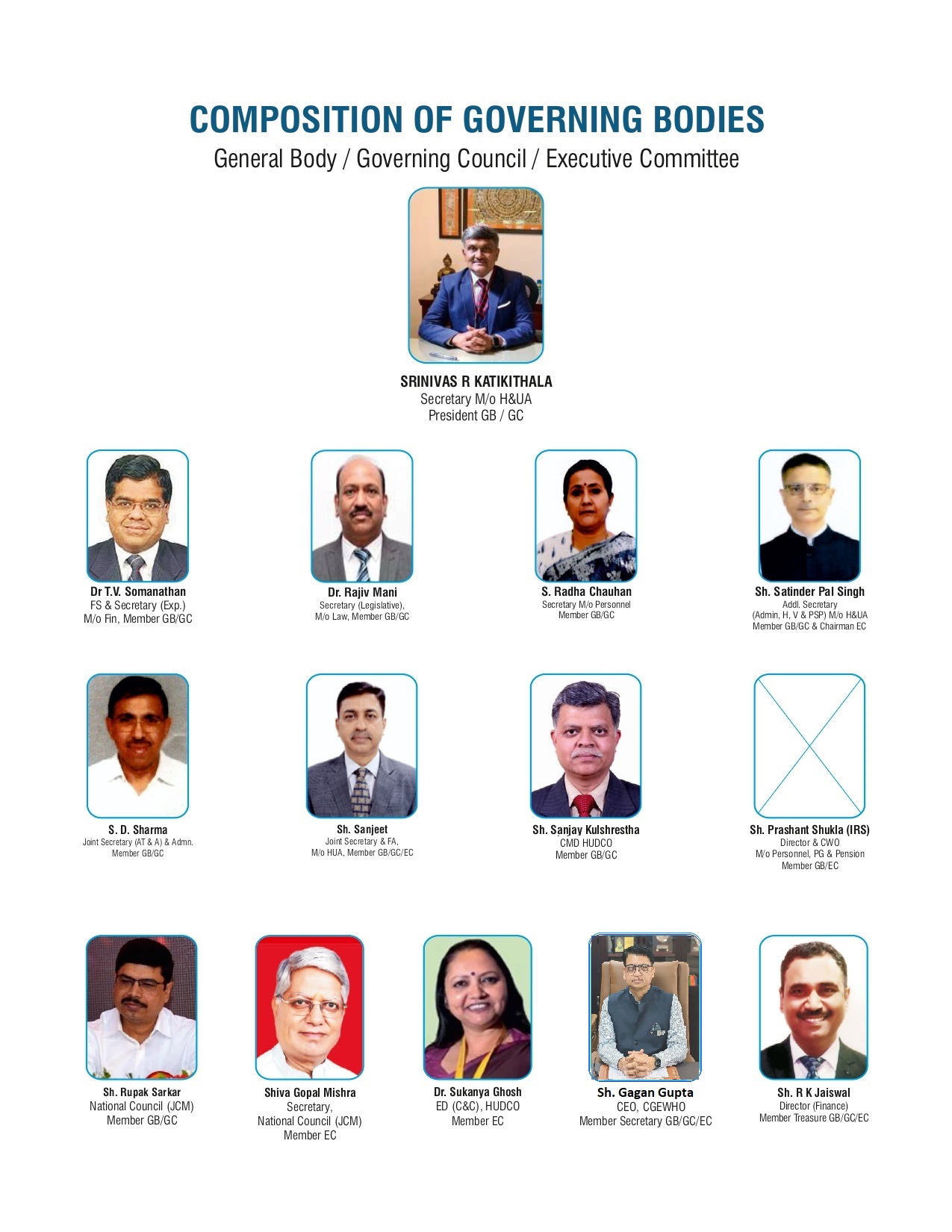
ORGANISATION
(Under M/o Housing and Urban Affairs, Govt. of India) Hindi Website Beneficiary Feedback

 |
Central Government Employees Welfare Housing Organisation (CGEWHO) has been established to promote, control and co-ordinate the development of houses at selected places, across India, on no profit-no loss basis as a welfare measure. CGEWHO is a registered body under the Societies Registration Act 1860. It operates from its headquarters at Janpath Bhavan, Janpath, New Delhi. There are no regional offices. The organisation maintains skeleton project teams at construction sites which look after day to day operations of construction and development
The organisation has the mandate to:
The goal of the organisation is to provide quality welfare service to Central Government Employees for housing. The organisation’s schemes at Chennai (Phase I), Nerul & Kharghar(Navi Mumbai), Panchkula, Calcutta(Phase I), Noida(Phase I & II), Gurgaon (Phase I & II), Chandigarh, Bangalore, Kochi(Phase-I), Hyderabad(Phase I), Pimpri-Chinchawad(Pune) and Noida(Phase III) have been completed. These comprised a total of 8386 dwelling units. The on-going housing schemes at Ahmedabad, Jaipur, Hyderabad(Phase II), Panchkula(Phase II), and Noida(Phase IV & V) have another over 3745 dwelling units under construction.
The General Body is a constitutional authority which lays down general policy guidelines and makes or amends Rules and Regulations of the society. Governing Council manages and administers the affairs of the society, approves requirements of staff and lays down policy for investment. Executive Committee looks after the day to day affairs of the organisation. Some of the powers of these bodies have been delegated to the Chief Executive Officer (CEO) who conducts the business and executes all contracts on behalf of the organisation.
Acquisition of Land
The basis on which land is procured in a particular station and the quantum thereof is dependent upon concentration of the Central Government Employees or the demand pattern for that particular station. In order to make an objective assessment, specific demand surveys are conducted. Such demand surveys are also helpful in determining the ratio of various types of dwelling units (DUs) to be built in a project. Following percentage density of DUs has been adopted in all the initial projects:
Type of DU |
Accommodation |
Approx Super Area (Sq Ft) |
Percentage Density of DUs |
A |
1 Bedroom unit |
550 |
15% |
B |
2 Bedrooms unit |
850 |
60% |
C |
3 Bedrooms unit |
1100 |
20% |
D |
3 Bedrooms & Study unit |
1350 |
5% |
Planning of projects is taken up only after firm allotment of the land has been obtained and the housing scheme is announced, subsequently. Procurement of land is made from the State Land Allotting Agencies or private agencies as considered appropriate, on case to case basis.